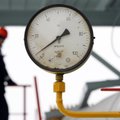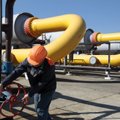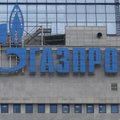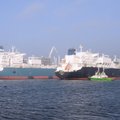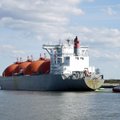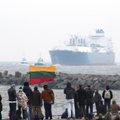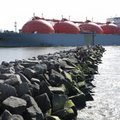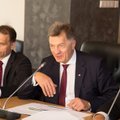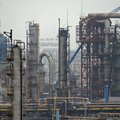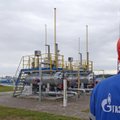Norway will allow increased production from its biggest natural gas field as Europe’s second-largest supplier of the fuel prepares for increased competition with Russia and the United States, Bloomberg reports.
Russian gas
72 straipsnių
On February 16, the European Commission published its long awaited “winter package”, a series of legislative documents partly outlining the foundation of the often debated Energy Union. For those who have lost track, at the heart of the Energy Union lie concerns about single-source dependence on nat...
Leaders of eight European Union countries, including the Baltic states, have sent a letter to European Commission President Jean-Claude Juncker criticizing plans for Nord Stream 2, a second underwater gas pipeline between Russia and Germany.
Prime Minister Algirdas Butkevičius claims that the teachers' trade unions on strike in Lithuania could have been influenced or inspired by Russia has attracted considerable attention. When describing how some members of the teachers' trade unions attended certain conferences in Russia, the prime mi...
Lithuania was one of the few EU countries to reduce its dependence on Russian gas supplied by Gazprom last year, with 20 countries including Germany, Italy, Britain and Denmark all importing more gas from the Russian energy giant in 2015.
New gas tanker with Statoil natural gas reached the Klaipėda LNG terminal yesterday on Independence day, marking a new phase in Lithuania’s move away from dependence on Russian gas supplies.
Russia‘s influence on Lithuania and the Baltic States is in serious decline with Russian businesses and capital playing a smaller and smaller part in the region, according to Forbes.
The increasing share of liquefied natural gas (LNG) in the Lithuanian market and the decreasing dependence on Russian gas is a good sign for consumers in Lithuania, according to analysts.
As the presidential race in the United States picks up pace, political analyst Simonas Klimanskis looks at which of the front-runners for the Democratic and Republican parties’ nominations would pursue foreign policies that are in the best interests of the Baltic States and Eastern Europe.
On Thursday, 17 December, Lithuanian President Dalia Grybauskaitė will travel to Brussels to attend a European Council meeting and discuss additional measures to manage the migration crisis, including the setting up of a European Border and Coast Guard. European leaders will also exchange views on h...
Lithuania will be the first country in Europe to receive a shipment of liquefied natural gas (LNG) from the United States, sources confirm.
In October, Estonian and Finnish gas companies, with the support of the national governments, jointly applied to the European Commission for financing of the construction of Balticconnector – the transmission pipeline network that would connect the gas networks of the two countries. Reaching an agre...
On 27 October 2014, the port of Klaipėda on the sea coast of Lithuania was crowded with people and heads of the Baltic States. The day marked a new era in the energy security sector for Lithuania, Latvia and Estonia, as an LNG ship called “Independence” was met with Lithuanian flags waving high. Eve...
On this day last year, the floating LNG regasification and storage unit Independence sailed into the port of Klaipėda. The LNG terminal is a crucial element in Lithuania's striving for energy independence from Russian gas and electricity imports, but arguments continue about who is going to pay for ...
Lithuanian Prime Minister Algirdas Butkevičius will visit Israel next week in order to discuss cooperation in the energy sector, reports Israeli news website walla.co.il.
Since the establishment of the European Coal and Steel Community in 1952, energy policy has been at the centre of European legislation. According to the paper issued by the Commission in 1995, EU energy policy should be based on three pillars: sustainability, competitiveness and security of supply.
The situation in the Lithuanian gas market has changed materially in recent years and now it’s up to the country to decide where to buy gas, the country's energy minister has said in comments about antitrust charges on Wednesday filed by the European Commission (EC) against the Russian gas concern G...
The case against alleged abuse of dominance by Russia’s gas giant Gazprom is not political, the European Union’s Commissioner for Competition Policy has said.
Gazprom might have charged unfair gas prices and abused dominance, the European Commission (EC) has said after completing a probe into possible abuse of monopoly power by the Russian gas giant in some Central and Eastern European countries.
